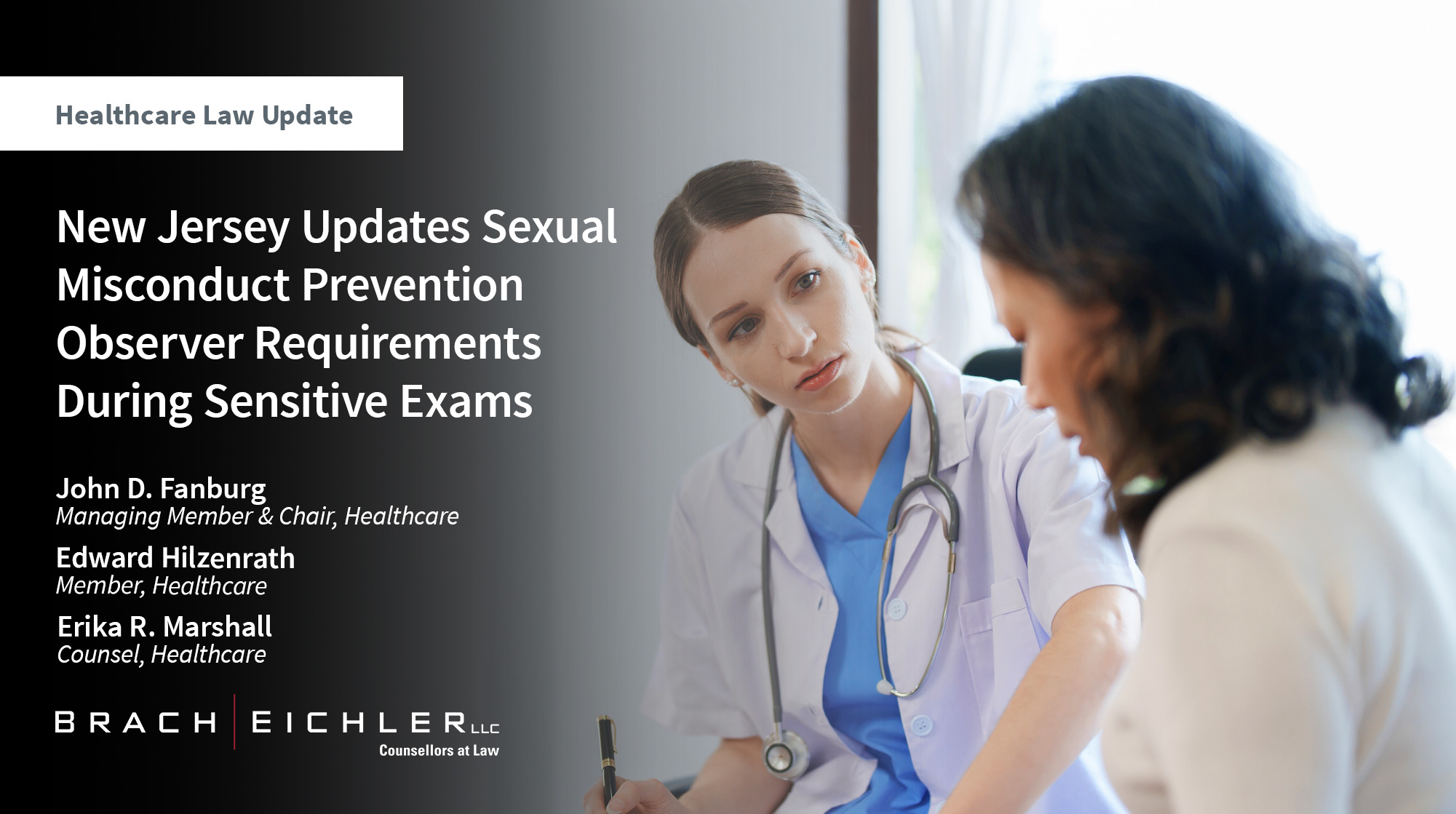New Jersey Updates Sexual Misconduct Prevention Observer Requirements During Sensitive Exams

11/1/2025
Effective October 20, 2025, the New Jersey Board of Medical Examiners amended its regulation regarding sexual misconduct prevention, N.J.A.C. 13:35-6.23. The amendments to the regulation strengthen patients’ rights and clarify licensee responsibilities when an observer is present during sensitive exams. Under the amended regulation, the licensee or the patient may request to have an observer present during breast, pelvic, genital, and rectal exams—and may decline care if an acceptable observer cannot be provided. In the event an acceptable observer cannot be provided, then neither the licensee nor the patient is required to proceed with the exam. If the exam is not conducted, the licensee will discuss the risks of delaying care, provide unbiased counseling, and, if possible, refer the patient to another practitioner.
Starting April 18, 2026, to be a qualified “observer”, an observer must complete 2 hours of observer training and provide an affirmation that the observer has not been subject to discipline or civil/criminal liability for failure to report misconduct or been convicted of a crime that would disqualify the observer from being a licensee under New Jersey law. An observer may not be a friend or relative of the licensee or the patient. A licensee is required to inform the observer in writing that the observer must 1) stay in the exam room; 2) be free from distractions; 3) maintain a clear line of sight of the examination; 4) report any misconduct to the Board; and 5) advise that the licensee will not retaliate against the observer for any making any reports.
Related Practices: Healthcare Law
Related Attorney: John D. Fanburg, Edward Hilzenrath, Erika R. Marshall
Related Industry: Healthcare















